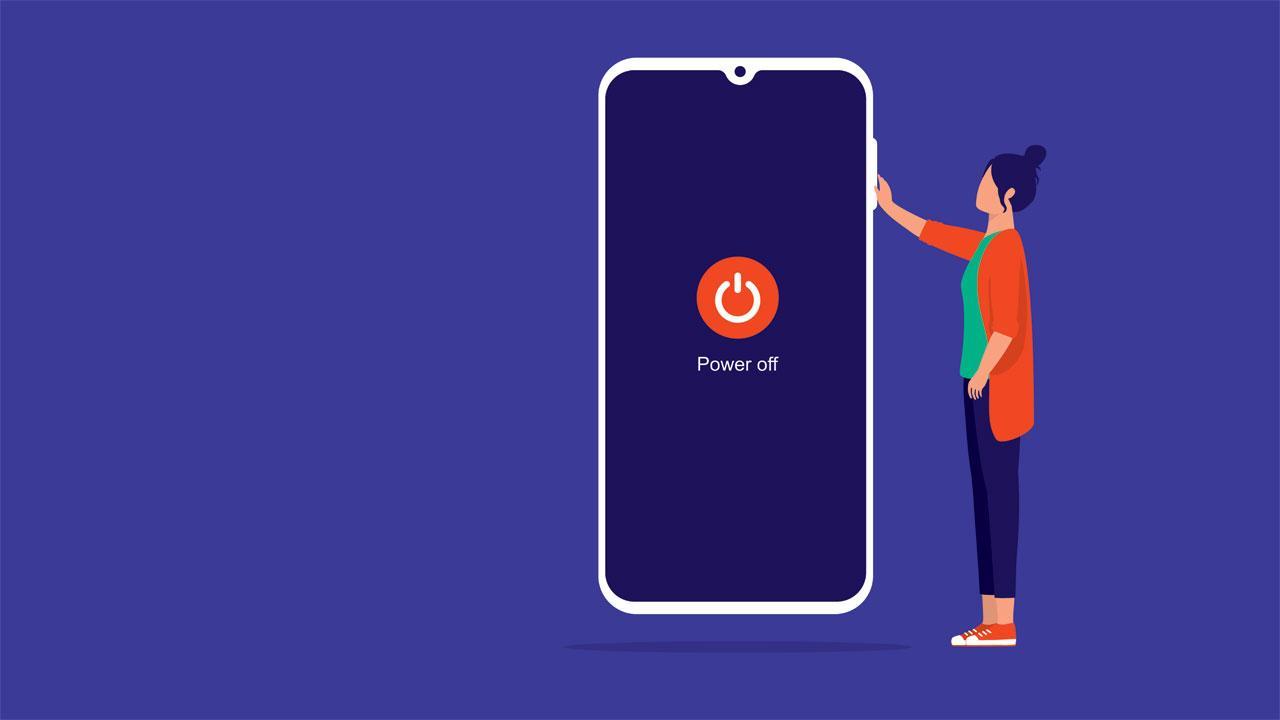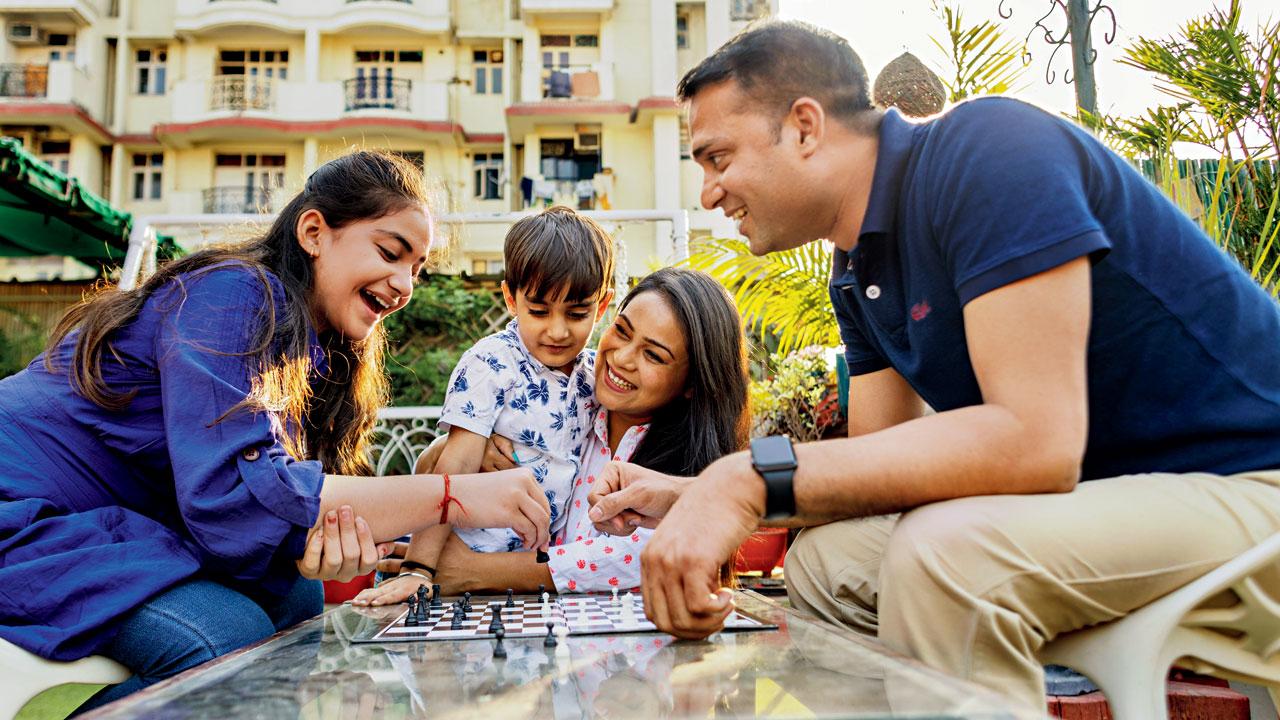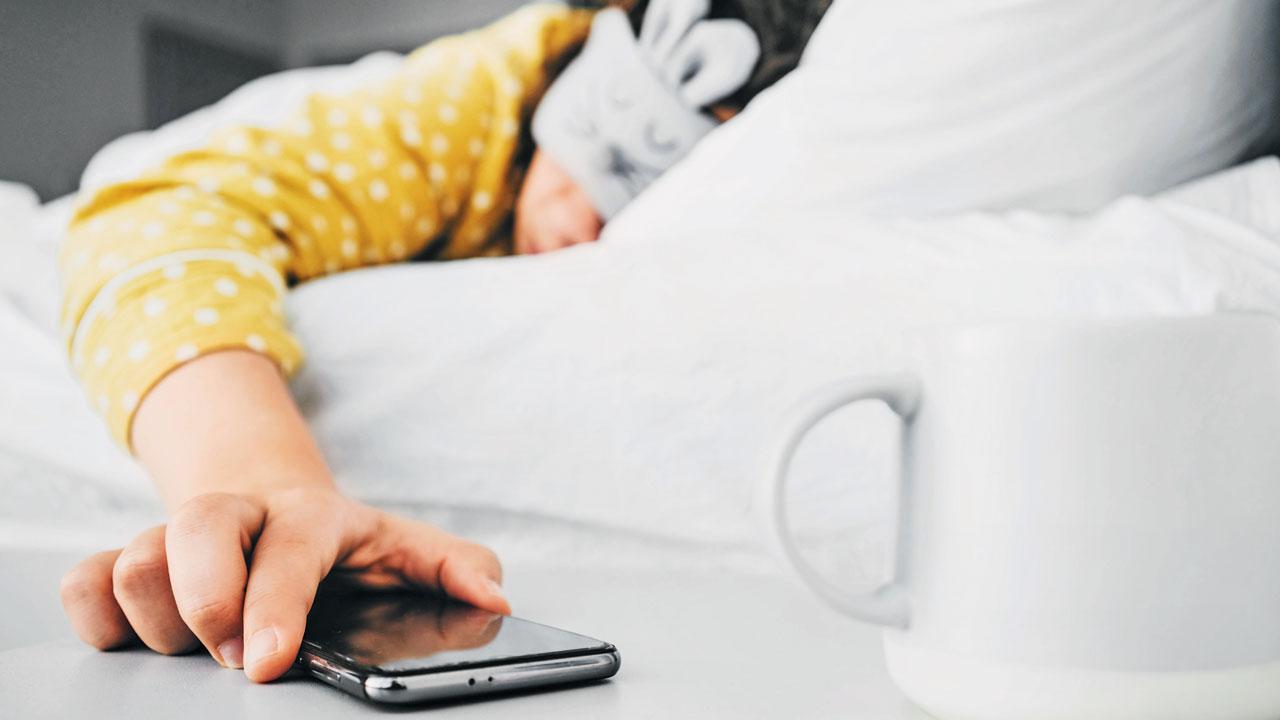Swearing off your phone altogether may not be feasible or practical in today’s digital age. Experts suggest more practical alternatives

Representation Pic
By this point, most of us are already aware of the adverse impacts of screen addiction on attention spans. Numerous studies and articles (much like this one) have attempted to raise awareness and propose strategies on how to reduce the amount of time we spend on our mobile devices. The reality, however, is that we live in an age where interconnectedness around the clock has become somewhat of an expectation, within both personal and professional realms. From replying to a romantic interest’s WhatsApp texts almost instantaneously so that they don’t lose interest, to professions that demand you be constantly online to not miss the latest marketing trend or miss out on career-making opportunities — the insidiously invasive nature of the digital era is hard to escape. Or, is it?

Walking barefoot on grass is an essential activity for mindfulness
ADVERTISEMENT
In a recent social media post, entrepreneur Nikhil Kamath once again highlighted how screen time takes up as much as 40 per cent of our waking hours, contributing to a 25 per cent decrease in average attention span over two decades. He went on to declare the last Sunday of every month should be a no-device day, as a means of reclaiming some of the control our generation has handed over to our screens. But how effective are strategies such as these? Is it a case of too little, too late? We spoke to two experts in a bid to find out.
Pause and effect
“Our addiction to our phones and other devices is rooted in a combination of several factors: the dopamine rush from notifications, the fear of missing out (FOMO), the need for social connection, and the desire for instant gratification and constant stimulation,” says coach Farzana Suri. She adds that while imagining a day without devices might seem utopian — our lives revolve around phones for work, news, knowledge, entertainment and even navigation — we can take steps to be more mindful and reduce our dependency. To this end, she proposes the concept of mini-detoxes, which you can build up into longer-term habits. Her advice is echoed by corporate trainer Rhea Punjabi, who also suggests a five-pronged strategy named P.A.U.S.E., to better manage your mini detoxes.

Your dining table should be a device-free zone
>> Plan device-free periods: “Schedule specific times each day or week to disconnect from your digital devices, such as an hour before bedtime and during meals. You can also determine specific activities or routines you want to keep device-free, such as meal-times, bedtime routines, or family time. To make this most effective, set reminders or alarms to signal the start and end of your device-free times,” says Punjabi.

Engage in offline activities like playing boardgames
>> Activity substitutes: “Replace digital activities with engaging offline activities such as reading books, exploring new places, meeting friends, cooking, gardening or exercising. Engage in offline activities that you enjoy or want to try, like puzzles, boardgames, arts and crafts, or learning a new skill,” says Punjabi. Suri recommends identifying triggers and replacing them with better options. “As we do with food, healthier substitutions can make reduced screen time a more sustainable way of life. Identify those parts of the day when you reach for your phone, and pick an activity you can substitute the screen time with,” she says.
>> Unplugged zones: While Punjabi suggests creating device-free zones in your home or office, like the dining area or bedroom, Suri suggests ensuring that your phone charging stations are not near your bed or couch. This simple step will compel you to take a break from your phone every now and then.

It’s not ideal to keep devices near your sleeping area. REPRESENTATION PICS
>> Solitude and stillness: It’s important to set aside regular periods of solitude, even if it’s just 15 to 30 minutes a day, says Punjabi. You can use this time to journal, meditate, or simply be present with your thoughts and emotions.
>> Engage with nature: Take walks and observe your surroundings without the urge to take photographs, says Suri. “Walking barefoot on natural surfaces like grass, soil or sand is an essential grounding activity that helps with mindfulness. Try to spend time immersed in natural environments by taking up activities such as hiking and camping, or visiting a park or beach,” adds Punjabi.

Rhea Punjabi
Suri also suggests a few simple hacks that can help with focus and reduce your screen time. “Unless you’re in a critical profession like healthcare, keep your phone on silent and check it every one to two hours, to avoid distractions. You can disable notifications to minimise interruptions or pin only those messages that are important so that you only focus on them and not on the myriad others that are competing for your attention,” she suggests. Suri also advises being more intentional about your screen time by rewarding yourself with 30-minute intervals of “dumb-scrolling” every two or three hours. This, she says, helps to ensure that you don’t keep reaching for your phone throughout the day. Using apps such as Screen Time or Digital Wellbeing to monitor your screen time and set daily limits help you to check and correct your scrolling habits.

Farzana Suri
Slow and steady
When you first begin your digital detox period, prepare yourself for potential withdrawal symptoms like restlessness or boredom, and have coping strategies ready, says Punjabi. She suggests establishing a ‘digital sundown’ routine by powering down all electronic devices at least one or two hours before bedtime, and replacing your screen time with calming activities like reading, taking a bath or gentle stretches. With many devices intentionally programmed to be addictive and stimulating, using the grayscale mode on your devices can help to make them less alluring. To make your detoxes more effective and to avoid missing out on important communications, inform your colleagues, clients and friends about your detox intervals. As your detoxes progress, make it a habit to evaluate your performance, celebrate milestones and adjust goals.
To this end, you can even maintain a physical journal to track your digital habits, express your feelings and map out your progress. “Minimise your screen time spilling over into your workday by creating a daily schedule that has designated working hours and breaks. Use time management techniques such as Pomodoro* (see box), to optimise your scheduling,” she adds. Finally, to keep yourself from falling off the bus, it helps to partner with a friend or family member who also wants to reduce device use. This way, you can keep each other accountable and share your progress.
What is the Pomodoro effect?
An effective time management technique that looks at focused work sessions where frequent short breaks are used to promote sustained concentration and stave off mental fatigue.
Log on to: todoist.com (for detailed understanding of this technique)
 Subscribe today by clicking the link and stay updated with the latest news!" Click here!
Subscribe today by clicking the link and stay updated with the latest news!" Click here!








